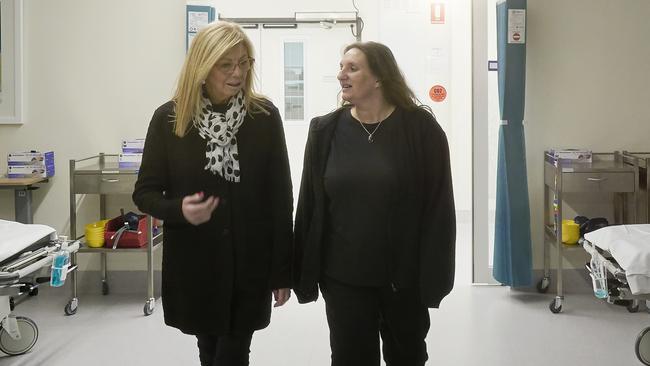Private health ‘needs urgent national reform’
Urgent national reform is required to expand Australia’s ‘piecemeal and fragmented’ out-of-hospital care sector.

Urgent national reform is required to expand Australia’s “piecemeal and fragmented” out-of-hospital care sector, with the nation squandering the potential to free up hundreds of thousands of beds and save well over $100m a year because of a lack of co-ordinated national policy.
A report by the Australian Medical Association has calculated that savings from out-of-hospital rehabilitation for total knee replacement alone could be as high as $62m if all clinically eligible patients had access to such care, with a saving of between 47,000 and 94,000 bed days in hospitals. It has renewed its call for the creation of an independent Private Health System Authority to drive reform to out-of-hospital care.
Rehabilitation at home has been shown to be at least equal if not superior for patient comfort and safety and clinical outcomes, reducing infection risk and in many cases facilitating a speedier return to mobility.
Out-of-hospital care also provides excellent clinical outcomes and patient experience in stroke recovery, mental health and palliative care.
Australia lags well behind the rest of the world in uptake of short-stay surgical models and end-of-life care.
The length of stay for elective surgery joint replacements in Australia’s private system is 5.4 days compared with 1.9-2.8 days in Canada, the US, Britain and Scandinavia.
Australia delivers only 10 per cent of palliative care in the home, compared with 41 per cent in the US and 56 per cent in Britain.
While the public system has a big job ahead of it to expand OOH care, adapting to provide a greater proportion of medical care outside of hospitals has been even more difficult for the private system. A piecemeal approach has developed in which it is unclear to consumers whether they will be able to access OOH care.
“It is clear that complexity, lack of transparency, and inconsistency in private health insurance is increasing and resulting in an environment that is similar to what existed before the ‘gold, silver, bronze, basic’ reforms which standardised in-hospital treatment coverage,” the AMA report said.
“One key reason for this is the absence of standardised, national, and universally applicable regulations and safeguards for providing out-of-hospital care in the private system.
“This has resulted in divergent views on how out-of-hospital care should be delivered and significant variability in quality and safety frameworks, clinical pathways, deterioration protocols, and pricing mechanisms.
“In addition, it is unclear in the private system who is financially or clinically responsible for a patient once they leave the hospital environment.”
A recent Private Healthcare Australia report also highlighted the problem and said Australia was “leaving $1.3bn of potential efficiency on the table by lagging well behind other countries in the uptake of out-of-hospital care models” in the private system alone. PHA CEO Rachel David agreed that legislation and policy reform were urgently required.
“The funding mechanisms are tied to doctors providing care in bricks and mortar hospitals,” Dr David said. I really think mental health in particular needs a deeper focus. Legislative amendments are really quite important for mental health, so that we can fund more mental health workers to provide care in the community.”
Some for-profit health insurers have moved to establish out out-of-hospital care programs for their own members run by companies they control, which the AMA has warned risks creating an unequal, US-style system which risks the principles of patient choice and clinical autonomy.
But Dr David said such initiatives were filling a gap in the market. “They’re filling a gap where there is no other option,” she said.
Private hospitals are also complaining that the system as it is currently set up is stymieing reform.
“We want to give patients choice about where they want to be cared for, and current funding arrangements do not offer this choice to hundreds of thousands of private patients,” said Catholic Health Australia director of health Caitlin O’Dea. “We would like to see a change in funding arrangements.”
CHA wants insurers to be forced to provide default benefits to patients for out-of-hospital care that provide minimum benefit for patients and establish a consumer safety net.
“Offering patient choice is the cornerstone of the private health sector and it is default benefits that ensure all private patients are able to exercise choice,” Ms O’Dea said. “It’s not for everything, but in some situations like dialysis, chemotherapy and palliative care that previously had to take place in a hospital, those care types can in some circumstances safely take place in patients’ homes.”




To join the conversation, please log in. Don't have an account? Register
Join the conversation, you are commenting as Logout